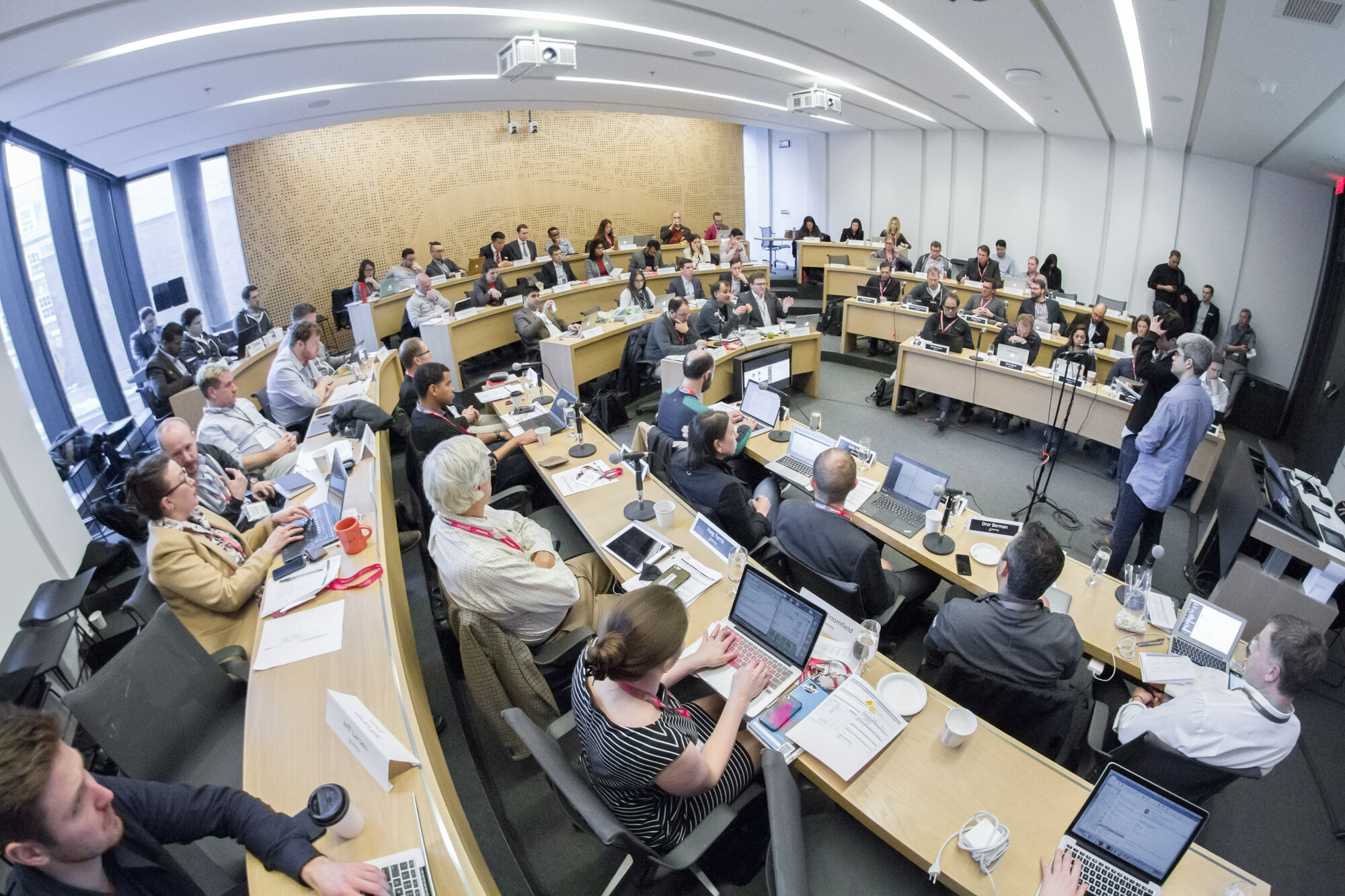Schwartz Reisman Institute for Technology and Society partners with Creative Destruction Lab to further the development of ethical AI
The Schwartz Reisman Institute for Technology and Society announces a new partnership with the Toronto Creative Destruction Lab’s AI stream, which provides mentorship and support to start-ups commercializing technologies that enable and expand the ethical use of AI.
The Schwartz Reisman Institute for Technology and Society (SRI) is pleased to partner with the Creative Destruction Lab (CDL) at the University of Toronto’s Rotman School of Management to support start-ups commercializing technologies that enable and expand the ethical use of AI.
The technical capabilities of machine learning algorithms are racing ahead of their commercial application. In many settings, the barriers to adoption of machine intelligence are not limits on its technical performance or a lack of data. Rather, barriers to adoption increasingly result from stakeholders’ concerns about the legal and ethical implications of integrating AI models into real-world decision making.
Creative Destruction Lab’s Toronto office.
SRI’s ongoing work to ensure safe and fair AI includes advising governments on data governance and trustworthy AI, conducting fundamental research on the ways technology, systems, and society interact, and developing the emerging fields of regulatory markets and regulatory technologies. SRI’s expertise in these and related areas, paired with the talent and innovation of the start-ups CDL-Toronto supports, will lay the groundwork for the development of AI that is safe, fair, trustworthy, and improves life for everyone.
CDL-Toronto’s AI stream focuses on start-ups that are working to commercialize research and develop products that provide solutions to challenges such as data privacy, algorithmic bias, model explainability and justifiability, and model robustness.
The CDL-Toronto and SRI partnership comes at a decisive time as concerns about the legal and ethical implications of AI will only grow.
Governments around the world are developing regulations to govern how organizations can use data and AI. The European Union recently revealed proposed harmonized rules on AI, noting that “the same elements and techniques that power the socio-economic benefits of AI can also bring about new risks or negative consequences for individuals or society.” In the United States, the White House’s Office of Science and Technology Policy drafted guidance for government agencies to “inform the development of regulatory and nonregulatory approaches regarding technologies and industrial sectors that are empowered or enabled by artificial intelligence (AI).” And, in Canada, the federal government launched the Directive on Automated Decision Making. The Directive regulates the use of automated decision-making systems for the federal government. National, state, and provincial governments around the world are considering new laws governing data, platforms, online content, and biometrics.
Central to concerns about the possible negative impacts of AI are the issues of data privacy, algorithmic bias, model robustness, and model explainability (see related work by SRI Faculty Affiliate Marzyeh Ghassemi) and justifiability (see related work by SRI Director Gillian Hadfield).
Given the complex and black-box nature of AI models, detecting and addressing these issues are significant technical challenges that require ongoing research and innovation. CDL-Toronto’s AI stream focuses on start-ups that are working to commercialize research and develop products that provide solutions to these challenges.
But technical inputs are not enough. To gain market adoption, these solutions must be informed by relevant ethical and legal principles which, given the newness of this technology and its applications, are themselves the subject of ongoing research. These issues are a key focus of SRI’s research and solutions initiatives, such as a recent keynote lecture by Gillian Hadfield, SRI’s ongoing privacy blog series, and our Solutions Stream, including ongoing work with the Rockefeller Foundation on innovations in AI governance, and a certification initiative for trustworthy AI.
Through the partnership with SRI, ventures in CDL-Toronto’s AI stream will gain access to the Institute’s thought leadership in the areas of fairness, ethics, and regulatory and legal infrastructure and innovation, as well as the Institute’s network of world-leading researchers, policymakers, and partner organizations looking for responsible AI solutions. The partnership between CDL-Toronto and SRI will accelerate the commercialization and adoption of fair, responsible, and ethical AI solutions that are both based on frontier scientific research and informed by the ethical, legal, and regulatory frameworks and innovations currently being developed, thus increasing the probability of success.
“We are very excited to be partnering with CDL on the AI regulatory complements stream,” says SRI Director and Schwartz Reisman Chair in Technology and Society Gillian Hadfield. “Our partnership with CDL will collectively scale ventures in AI regulatory complements, which is critical as the challenge of responsible AI is presenting itself in every domain of the advanced democratic market economy: from determining how to regulate autonomous vehicles and implementing fair automated decision making in government services and industry, to ensuring that automation does not cause massive disruption to our political, social, and economic systems.”
CDL is currently seeking applications for the 2021/22 year. Founders are invited to apply on the CDL website by July 30, 2021, or register for a webinar to learn more about how CDL can help them build a massively-scalable business in AI.
With files and images from CDL.
Want to learn more?
Read Gillian Hadfield’s recent commentaries on the need for regulatory innovation in AI legislation.
Explore our ongoing privacy blog series on topics of data security and policy.
Check out SRI’s Solutions work with the Rockefeller Foundation on innovations in AI governance.
Learn about SRI’s certification initiative for trustworthy AI with the World Economic Forum.
Read about the SRI and CDL-Toronto partnership on the CDL website.
Creative Destruction Lab is a nonprofit organization that delivers an objectives-based program for massively scalable, seed-stage, science- and technology-based companies. Its nine-month program allows founders to learn from experienced entrepreneurs, increasing their likelihood of success. Since its founding in Toronto in 2012, the program has expanded to nine sites across four countries. Its 16 streams include AI, commerce, blockchain and fintech. Since CDL’s inception, participating companies have created more than $12 billion (CAD) in equity value.
Created in 2019 as a result of a historic gift from Canadian entrepreneurs Gerry Schwartz and Heather Reisman, the Schwartz Reisman Institute for Technology and Society explores and addresses the ethical and societal implications of technology, with a particular focus on AI in its first five years. The Institute conducts and integrates world-renowned research, serves as a convener and a hub for paradigm-shifting public policy conversations on the AI and society theme, and develops human-centred solutions for building safe, responsible, and inclusive AI.













